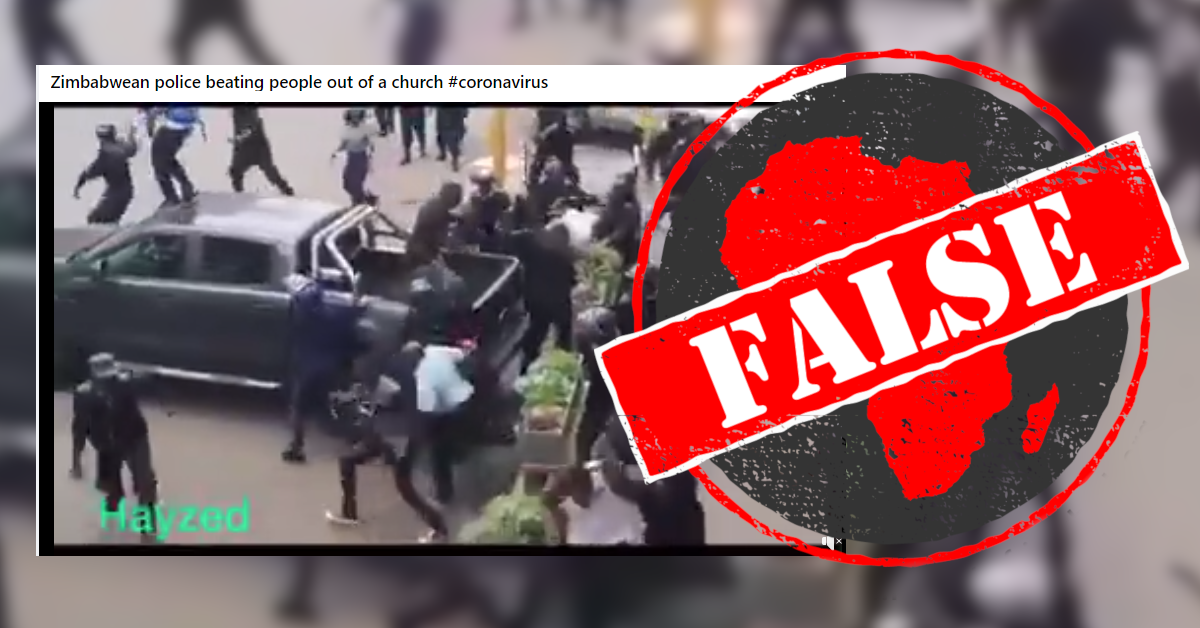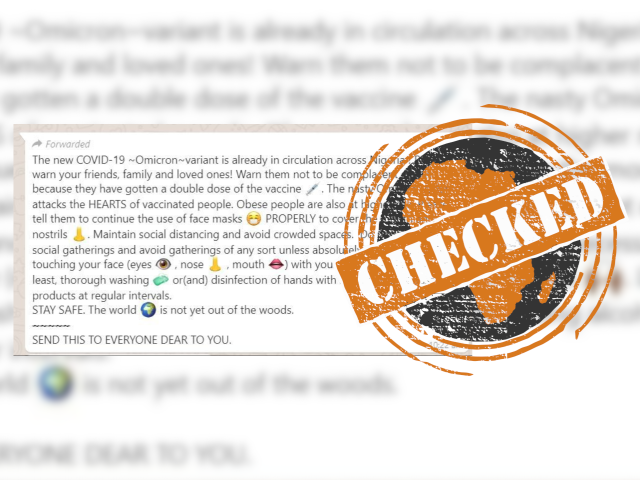A shaky video posted on Facebook on 22 March 2020 shows uniformed officers striking members of a crowd gathered in a street. “Zimbabwean police beating people out of a church #coronavirus,” the caption reads.
On 17 March Zimbabwe’s government declared a national emergency to curb the spread of Covid-19, the coronavirus disease. The emergency regulations banned all gatherings, including church services.
Does the video show Zimbabwean police enforcing these regulations by “beating people out of a church”?

A Google reverse image search did not return any clues to the video’s origin. So we searched YouTube for footage of police beating people in Zimbabwe, and found two clips of the same video. Both were posted in November 2019.
The clips are described as showing police beating people fleeing the Movement for Democratic Change headquarters building in Zimbabwe’s capital, Harare. The MDC is a political party in opposition to the government.
One video is captioned: “Police Brutality in Zimbabwe outside MDC HQ Harvest House 20 November 2019”.
The incident was widely reported by global media. The police uniforms in the Facebook video tally with those in other videos where Zimbabwean police are identified.
Supporters had gathered to listen to a speech by MDC leader Nelson Chamisa. The incident took place more than a month before the World Health Organization reported the first cases of Covid-19, in China. – Vincent Ng’ethe
On 17 March Zimbabwe’s government declared a national emergency to curb the spread of Covid-19, the coronavirus disease. The emergency regulations banned all gatherings, including church services.
Does the video show Zimbabwean police enforcing these regulations by “beating people out of a church”?

Video months before first case of virus
A Google reverse image search did not return any clues to the video’s origin. So we searched YouTube for footage of police beating people in Zimbabwe, and found two clips of the same video. Both were posted in November 2019.
The clips are described as showing police beating people fleeing the Movement for Democratic Change headquarters building in Zimbabwe’s capital, Harare. The MDC is a political party in opposition to the government.
One video is captioned: “Police Brutality in Zimbabwe outside MDC HQ Harvest House 20 November 2019”.
The incident was widely reported by global media. The police uniforms in the Facebook video tally with those in other videos where Zimbabwean police are identified.
Supporters had gathered to listen to a speech by MDC leader Nelson Chamisa. The incident took place more than a month before the World Health Organization reported the first cases of Covid-19, in China. – Vincent Ng’ethe
Republish our content for free
For publishers: what to do if your post is rated false
A fact-checker has rated your Facebook or Instagram post as “false”, “altered”, “partly false” or “missing context”. This could have serious consequences. What do you do?
Click on our guide for the steps you should follow.
Publishers guideAfrica Check teams up with Facebook
Africa Check is a partner in Meta's third-party fact-checking programme to help stop the spread of false information on social media.
The content we rate as “false” will be downgraded on Facebook and Instagram. This means fewer people will see it.
You can also help identify false information on Facebook. This guide explains how.





Add new comment